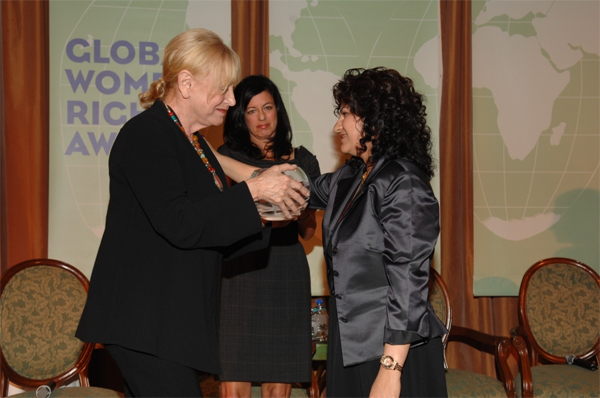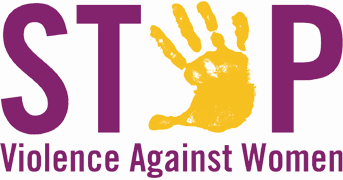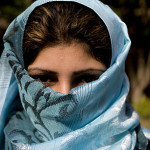By Laura Raymond, Advocacy Program Manager at the Center for Constitutional Rights
“I would like to recall the first US war in Iraq, in ’91 at 2:30 a.m. when those bombs went down and they devastated our reality forever.” – Yanar Mohammed, testifying at the Right to Heal People’s Hearing, March 26, 2014.
Listening to talking heads discuss the current situation in Iraq and call for airstrikes, one would think the last two catastrophic decades of U.S. military action in Iraq never happened. As Yanar Mohammed, the president of the Organization of Women’s Freedom in Iraq (OWFI) says in the quote above, the US has been bombing Iraq since 1991. Now, without ever being held accountable for lies and propaganda that propelled the U.S. invasion in 2003, the likes of Paul Wolfowitz — or worse still, Paul Bremer — are on TV as experts opining about what U.S. policy should be now.
Let us collectively ignore them and instead focus on the voices of leaders within Iraq working in the interests of the Iraqi people. A strong civil society exists in Iraq that rejects the sectarian policies that have been imposed upon it. On June 15, the president of the Federation of Workers Councils and Unions in Iraq (FWCUI), Falah Alwan, published an important statement in Jadaliyya rejecting U.S. intervention, the intervention of Gulf regimes, Nouri al-Maliki’s “sectarian and reactionary policies,” and “armed terrorist gangs and militias’ control of Mosul and other cities.” Falah represents one of Iraq’s largest labor federations of working people across the country. FWCUI’s aim “to stand with those who represent the interests of the people and to empower them in the face of this dangerous and reactionary attack” represents some of the most promising hope in this terrifying situation. Yesterday, Yanar Mohammed was on KPFA in Berkeley calling for the empowerment of Iraqis who would secure a “state of equality, a state of freedom” in the country.
It was the hope represented by these Iraqi movement groups coming together with US groups that brought us at CCR together with groups in Baghdad — OWFI and FWCUI — and Iraq Veterans Against the War, Civilian Soldier Alliance, War Resisters League, MADRE, and others here in the U.S. as the “Right to Heal Initiative” to assess the far-reaching, multigenerational impacts of the Iraq War on Iraqis and U.S. veterans and to begin to take steps toward healing in the war’s aftermath. Our initiative’s documentation of the human rights violations from the war and demands for accountability are ongoing — both among Iraqis and also among veterans.
While calling for concrete reparative action, the Initiative has also been consistently trying to remind the U.S. public about the stark facts from the war: U.S. military action in Iraq has led to hundreds of thousands of deaths since 2003. Studies of the 2003 Iraq War found that U.S. airstrikes in particular caused “indiscriminate effects,” meaning more civilians died in this way than by other causes during the war; Iraq Body Count has reported that about 39 percent of those killed by Coalition airstrikes were children. The kinds of weapons the U.S. used in Iraq, including munitions coated with depleted uranium, are believed to be linked to spikes in cancer rates and birth defects in Iraq. The U.S. occupation and continued support for al-Maliki’s government has increased sectarianism in Iraq, which is the root of this present crisis.
These facts make it clear that further US military action in Iraq cannot be a solution to the present crisis. US militarism and occupation have contributed to the current situation, and continuing on this path would mean only further disaster for Iraqis already reeling from decades of war. As Iraq Veterans Against the War says in their powerful statement , “Those of us who were there know first hand that US military solutions in Iraq do not serve the interests of the Iraqi people.”
Just a few months ago, the Right to Heal held a People’s Hearing on the Legacy of the Iraq War in Washington, D.C. where Yanar Mohammed talked about some of the Initiative’s demands during the Hearing:
“The birth defects that have happened — there needs to be reparation for those families. The areas that have been contaminated — there needs to be clean-up for them. And also, we feel that the nations that are based on militarism need to be changed. And the change can come from places like this. We will not surrender. We will change the world — each of us from our own place but in solidarity.” (1:12:00 of video)
This call to action is for all of us, and it has never been more relevant than it is right now. Militarism led us to this point. International solidarity can help lead us out of it. But that is not all: beyond this moment, we need long-term solutions to the devastation U.S. policies in Iraq have wrought. The U.S. government must rigorously pursue people-centered reparations, clean-up from the war, and disengage from its support of the Iraqi government’s sectarian policies and heavily arming its military. The international community must step up; thus far it has largely ignored the crucial question of accountability, one which could lead to healing and greater peace. And U.S. anti-militarist, human rights, health and justice groups must also realize that the war is not over and step up to do everything possible to address the lasting harms from the war in solidarity with Iraqi civil society.
Source: www.huffingtonpost.com/




